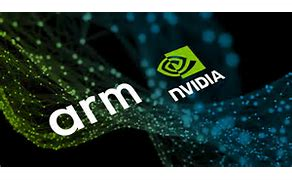Nvidia’s $40 billion ARM deal may cause national conflicts in China

National conflicts stir up between the United States and China as Nvidia makes moves to buy China-based Softbank-owned ARM from $40 billion.
The United States and China have been in a timeless battle for dominance of the world’s technology.
The ARM deal requires regulatory approval from the European Union, the United Kingdom, the United States, and China. Getting all countries to approve the deal may be quite difficult for Nvidia, especially from China, as there are already indications that China is not comfortable with America owning one of the leading tech companies in the semiconductor industry.
In a publication by The Global Times, a state-run Chinese tabloid was cited, describing the Nvidia’s/ARM deal as “disturbing” for both the Chinese and European tech companies that rely on the chip company for its products and services.
“If ARM falls into US hands, Chinese technology companies would certainly be placed at a big disadvantage in the market,” read the Chinese tabloid.
Chinese regulators are yet to publicly comment on the deal. However, in 2018, a similar deal failed when Beijing refused to approve American chip company Qualcomm’s proposed $44 billion takeover of Dutch-owned NXP. For this same reason, there are possibilities that Beijing would once again decline US-owned Nvidia’s takeover of British-based ARM.
According to Nvidia and ARM, the deal is expected to last at most 18 months which the companies “believe signals that they [regulators] expect a protected and detailed review by [the Ministry of Commerce] in China,” the companies’ analysts said.
ARM’s Importance in the semiconductor industry
The British-based chip company plays an important role in the semiconductor industry as semiconductors power every technology from smart devices to self-driving cars. Over the years, the industry has consolidated to generate more cash for research and development of computer chips.
ARM is a successful and popular chip making company, not only in Britain but also one of the best in the world. The company designs chips for big tech brands such as Apple, Samsung, among others. Some top Chinese semiconductor design companies like Hauwei’s HiSilicon, also use ARM intellectual property to develop their own designs too.
“ARM has been really useful for China because UK [export] rules are a bit more lax,” said James Lewis the senior vice president and director of the Technology Policy Program at the Center for Strategic and International Studies (CSIS).
There are concerns that if an American company eventually acquires ARM, the company would be subject to the United States’ regulations.
“If they moved to Nvidia they would fall under American export rules which have significantly tightened over the last few years,” said Lewis.


Be the first to comment!
You must login to comment